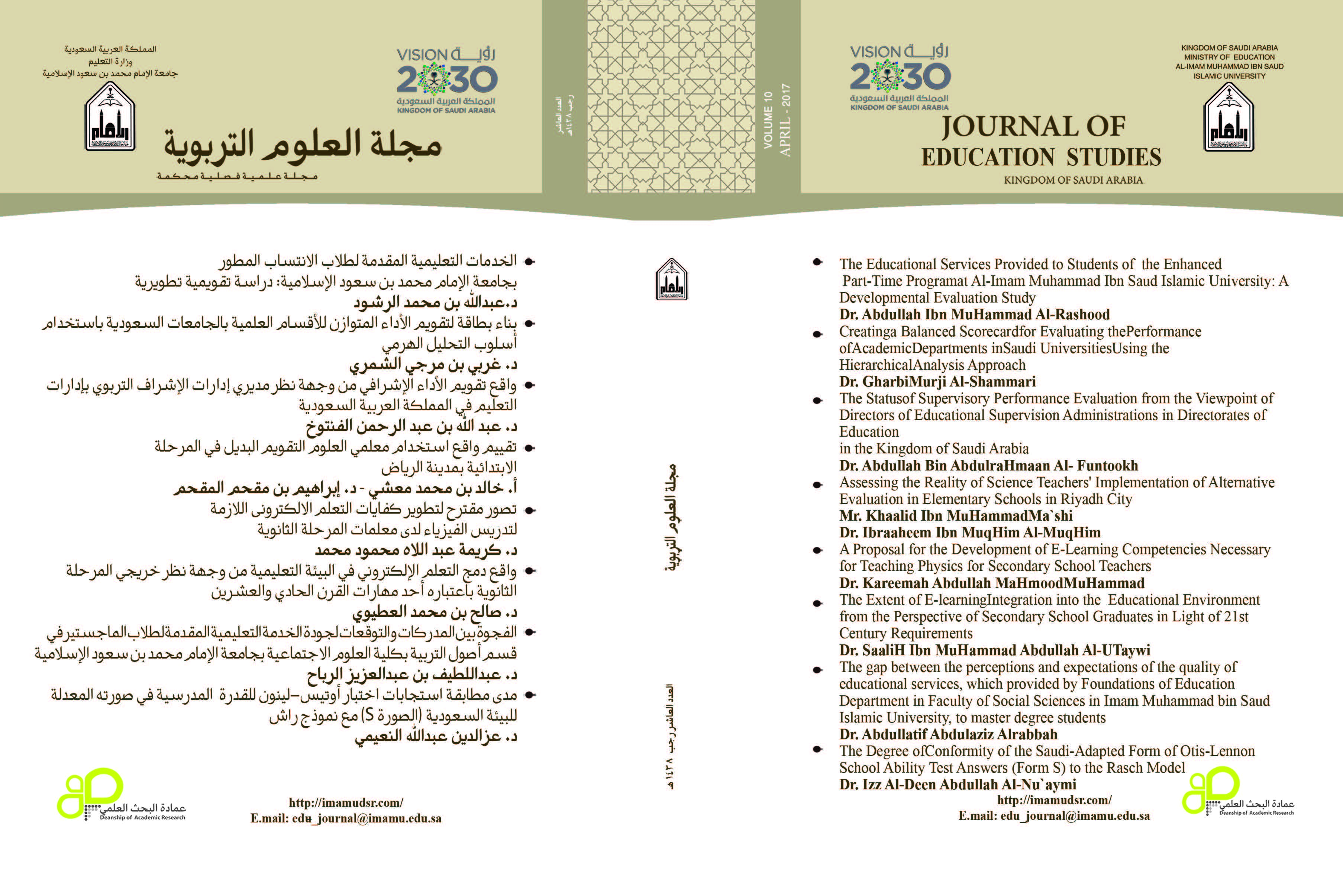The Extent of E-learningIntegration into the Educational Environment from the Perspective of Secondary School Graduates in Light of 21st Century Requirements
Keywords:
21st century skills, e-learning, information and communication technology, integrationAbstract
Information and Communication Technology (ICT) is the backbone of e-learning due to its new and constant innovations which have various contributions in enhancing educational environments. This study seeks to answer the main question: what are the views of secondary school graduates(males and females), studying in the Preparatory Year at Majmaah University about integrating E-learning into the educational environment (Third secondary school class) in light of 21st century requirement? The study population consists of all male and female students enrolled in the Preparatory Year at the beginning of the first semester of the academic year 1433/1434 AH. It consists of 541 students (372 males and 169 females). A questionnaire wasused as an instrument for data collection. The total number of valid questionnaires collected for analysis are 454, 278 frommale students and 167 female students. The quantitative analytical approach was used to determine arithmetic means and standard deviations, and the t-test was used to see whether there are statistically significant differences between the means of the study sample (male and female students) in(1) the utmost use of e-learning in courses, (2) male and female students' use of e-learning in the educational environment, (3) male and female teachers' use of e-learning in the educational environment, and (4) the integration of e-learning into the content activities.
Theresults of the study reveal that there are statistically significant differences in favor of female students. However, in general, the results confirm that there is a weakness in the use of e-learning either in each of the courses, in its use by male and female teachers and male and female students, or in its integration into the content activities. Because e-learning is one of the components of the 21st century, school administrations should adopt a well-defined strategy that urges teachers and students to acquire e-learning skills and knowledge through various workshops. This ensures that the outputs meet thework environment requirements, and enables them to compete in light of the differentvariables.




